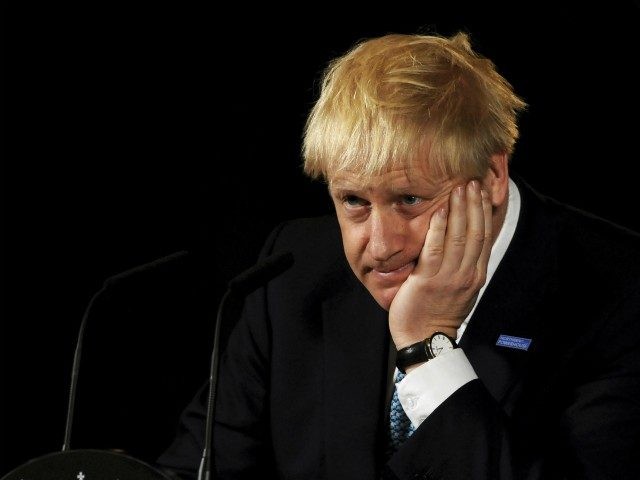Prime Minister Boris Johnson’s government is facing a ticking “time bomb” of public opinion if it fails to curtail immigration, warned a leading think tank.
Migration Watch UK said that while the opinion of the British public is split on the issue of migration — with a majority still holding negative views on its impact — there could be a spike in opposition if Boris Johnson’s proposed migration system opens the floodgates to overseas workers.
“While public opinion may have become less negative about immigration that could turn round very sharply if the government’s new system were to allow numbers to run out of control again. Indeed, the most negative reaction is likely to be among those who voted for the government for the first time last December,” said chairman Alp Mehmet said on Friday.
Last year, in his Conservative Party manifesto, Boris Johnson promised to the British public that if elected he would seek to cut migration through the introduction of an Australian-style points-based system. This followed similar pledges to reduce the number of migrants from the party in three previous manifestos “from the hundreds of thousands to the tens of thousands”.
The Tories failed to fulfil any of these pledges, and Prime Minister Johnson has dropped the target altogether. His proposed points-based-system could also lead to a sharp increase in migration, as it fails to place a cap on the number of foreign workers, as was the case in the Australian model.
The former Chancellor of the Exchequer, George Osborne, admitted in 2017 that the Conservative governments never had any intention of actually reducing migration.
In a Breitbart London exclusive video in December, Mr Mehmet said that “the Tories have frankly run scared of their previous commitments and promises that they would reduce immigration. ‘Get it down to tens of thousands’ they said, which frankly was not a bad objective.”
“They couldn’t do it, largely because they were afraid,” he had added.
62 Per Cent of Britons Think Boris Johnson’s Government Is Failing on Immigration https://t.co/ftbRQFGPd9
— Breitbart London (@BreitbartLondon) July 28, 2020
Friday’s paper was responding to a blog from the London School of Economics (LSE), which said that there had been a decline in public opposition to migration since the peak in 2008.
Migration Watch UK said that shifting public opinion may be a result of factors including polling errors, such as the wording of polls. There has also been an improvement in the job market since 2010. The influence of the BBC and other pro-migrant institutions such as the education system, and a change in the editorial slant in prominent British news outlets, may have influenced polling.
The think tank also noted that since 1998, there had been a “considerable increase” in the number of non-UK-born and migrant descended population. The market research company Ipsos has indicated: “Countries with [a] higher proportion of immigrants tend to have more positive views about immigration.”
The pressure group suggested that a decline in the negative perception of migration may also be a result of the public believing the Conservative Party’s pledges to cut numbers. The think tank noted that there were steep drops in public opposition to migration following the 2010 election of the Conservative Party and the 2016 Brexit referendum.
An aggregate calculated by Migration Watch UK of seven reputable polls conducted between the Spring of 2018 and mid-2019 found that some 30 million adults in the UK would support a tightening of immigration laws.
Think Tank Warns BoJo’s Uncapped Migration System Leaves UK Open to 660 Million Migrants https://t.co/Y6UjaGdwUf
— Breitbart London (@BreitbartLondon) July 30, 2020
Follow Kurt on Twitter at @KurtZindulka

COMMENTS
Please let us know if you're having issues with commenting.